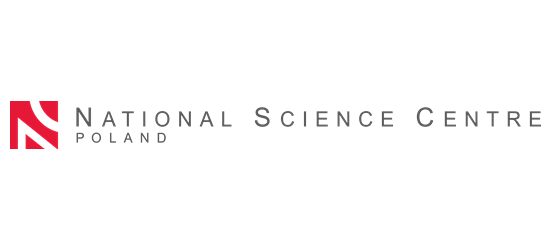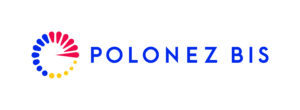Title: The impact of war-induced stress on the development and progression of arterial hypertension and cardiovascular disease in Ukrainian female refugees (acronym: War-Scar)
Project number: 2022/45/P/NZ5/02812
Call: POLONEZ BIS 2 – announced on 2022-03-15
Panel: NZ5 – Human and animal noninfectious diseases: etiology, mechanisms, diagnosis and treatment of diseases, poisonings and injuries (without neurological diseases)
Descriptors:
NZ5_3: Pathogenesis of human diseases;
NZ5_5: Diagnostics in human diseases;
NZ5_7: Human disease treatment.
Keywords:
war-induced stress arterial hypertension cardiovascular disease Ukrainian female refugees
Amount awarded: 1 135 020 PLN
Project start date (Y-m-d): 2023-03-01
Project end date (Y-m-d): 2025-07-30
Project duration: 29 months
Project status: Pending project
Project description
Hypertension (AH) is the leading cause of cardiovascular morbidity and mortality worldwide. Growing evidence supports the impact of psychological factors on arterial hypertension and cardiovascular outcomes, such as traumatic experiences and Post Traumatic Stress Disorder (PTSD). This association can be mediated by different and interconnecting pathways, including neurohormonal and immunity-mediated mechanisms.
The current war in Ukraine is causing exposure of millions of inhabitants to traumatic experiences and severe stress. Part of Ukrainian population was induced to leave its country to escaping war, and currently approximately 2 millions of Ukrainian refugees are present in Poland, mostly women and children from Eastern regions. The scientific goal of this project is to assess of the impact of war-induced stress on arterial hypertension and cardiovascular diseases in Ukrainian refugees. A further goal of this project is the treatment of arterial hypertension and PTSD in this population, in order to improve the health and well-being and to decrease mid- and long- term cardiovascular morbidity and mortality. In addition, this project has the aim to identify mechanisms underlying the association between arterial hypertension and PTSD, in order to improve management and treatment of these conditions.
We will test the hypothesis that psychological stress and trauma exposure may increase blood pressure and contribute to arterial hypertension development/worsening and progression of cardiovascular disease (CVD).
The project will include 3 different stages: a first stage of screening for arterial hypertension and PTSD among Ukrainian refugees, a second stage of follow-up and management both of arterial hypertension and PTSD, and a third stage of more in depth assessment of mechanisms involved in the association between arterial hypertension and PTSD in a subgroup of subjects.
The first stage of the project will provide evidence about prevalence of hypertension and PTSD among Ukrainian refugees and will allow to estimate the impact of war-related trauma exposure in this population.
The second stage will involve subjects diagnosed with arterial hypertension and/or PTSD, who will be referred to management and follow-up of these conditions. Psychologic targeted therapies will be provided to subjects with PTSD, with a periodical reassessment of the severity of PTSD-associated symptoms and of its impact on daily-life activities.
The thirsd stage will involve a subgroup of subjects among those screened in Stage 1, with the objective of investigating the mechanisms underlying the relation between arterial hypertension and trauma- exposure. Further evaluations will be performed, such as assessment of hormonal and immunity function, measurement of out-of-office blood pressure during daily life activities, screening for early signs of cardiovascular organ damage, and evaluation of overall cardiovascular risk profile (dyslipidaemia, diabetes, smoking, and renal disease).
Ukraine war has already caused several thousands of deaths and it will likely have long-term consequences on population health. Trauma exposure at population level, as experienced currently in Ukraine, may have a huge impact on cardiovascular disease burden. Timely detection and management of Ukrainian refugees’ health problems may therefore reduce disease burden and, in particular, screening for and treating arterial hypertension and PTSD in this population may result in a large-scale reduction of cardiovascular morbidity and mortality in the long-term.
Medical benefits of the project include better understanding of pathological mechanisms underlying effects of war-induced stress on hypertension and cardiovascular disease in women, clinical testing and implementation of diagnostic strategies that will help to reduce cardiovascular risk in stress-exposed subjects.
Social benefits of the project are related to improved diagnosis of stress-induced hypertension and cardiovascular disease in women, provide an opportunity to obtain them the necessary medical care outside the homeland in the native language. It will improve the social adaptation of women who survived the war and might contribute to maintain life quality and increase life expectancy in these women.
Economic benefits of the study will be determined by a significant increase of efficiency of diagnostic measures that will allow timely identification of war-induced stress and prevent the development and progression of hypertension and cardiovascular disease in women, reduce treatment costs, and increase efficiency of treatment.
Furthermore, this project will pave the way to a specific approach of cardiovascular risk management in subjects exposed to chronic violence, war, immigrants and refugees.
Project cooperation: Division of Psychiatry of the Medical University of Gdansk (Prof. Wiesław Cubała), Sopot Center for Integration and Support for Foreigners.
The international cooperation with research teams from 3 countries:
• Belgium: Cliniques Universitaires Saint-Luc Université catholique de Louvain, Brussels (Prof. Alexandre Persu, Prof. Maria Simona Stoenoiu);
• Switzerland: University Hospital, Lausanne (Prof. Michel Burnier);
• Ukraine: State Institution “National Scientific Center M.D. Strazhesko Institute of Cardiology, Clinical and Regenerative Medicine” of the National Academy of Medical Sciences of Ukraine (team of Prof. Larysa Mishchenko);
Government Institution “L. T. Malaya Therapy National Institute of the National Academy of Medical Sciences of Ukraine” (team of Prof. Olena Kolesnikova); Ivano-Frankivsk National Medical University (team of Prof. Sergiy Fedorov).
News and Events
23-26.05.2024 – Poster presentation during 30th Congress of the International Society of Hypertension held in city of Cartagena de Indias, Colombia
23-26.05.2024 – Poster presentation during the 34th Scientific Meeting of the European Society of Hypertension held in Milan, Italy
01.02.2024 – Extension of project implementation time to 29 months – until July 30, 2025.
23-26.06.2023 – Oral presentation and poster during the 32nd Scientific Meeting of the European Society of Hypertension held in Milan. Italy
01.03.2023 – Official start of project implementation. Project will last for 24 months until 28.02.2025.



